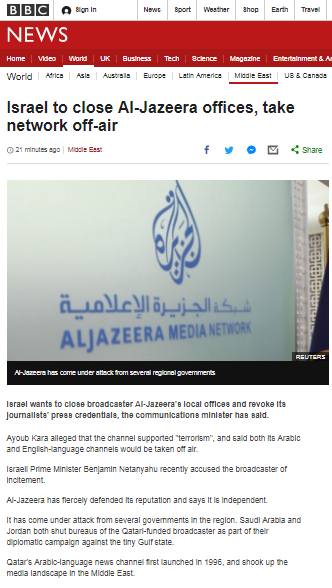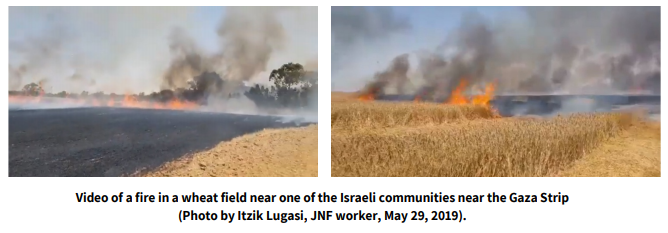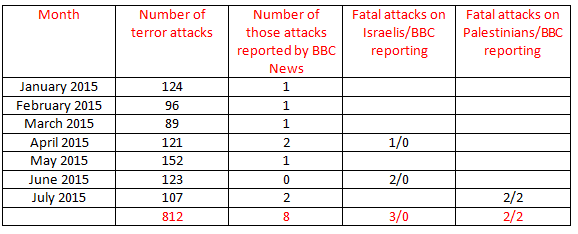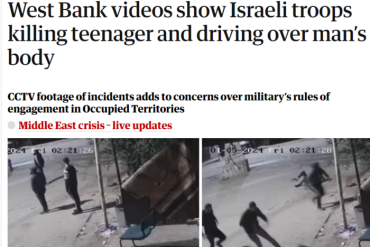Back in October 2015 the BBC News website produced a backgrounder titled “Is Palestinian-Israeli violence being driven by social media?” which actually did very little to inform audiences of the scale and significance of the incitement spread via social media, the kind of content appearing on such platforms or the use of social media by official Palestinian groups other than Hamas – including Mahmoud Abbas’ Fatah party – for incitement and the glorification of terrorism.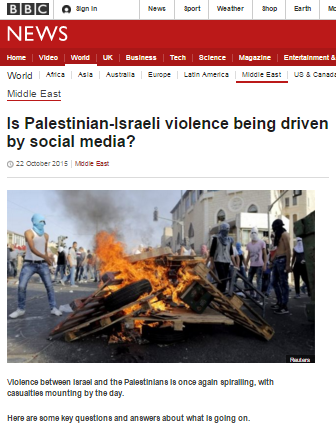
BBC coverage of a report produced by the Quartet at the beginning of July 2016, in which Palestinian incitement was identified as one of several factors ‘driving’ the conflict between Israel and the Palestinians, played down that issue, preferring to focus audience attentions on the topic of ‘settlements’.
Also in July, BBC Technology produced a report titled “Israel angered by Facebook hatred rules” and incitement on social media was the topic of an additional article published later the same month under the title “Facebook sued by Israeli group over Palestinian attacks“.
Although BBC audiences had not been provided with any serious, comprehensive reporting on the subject of Palestinian incitement and the link between social media and the wave of terrorism against Israelis which emerged in the autumn of 2015, as was noted here at the time:
‘Nevertheless, the BBC found it appropriate to include amplification of the response of a terrorist organisation, which has long used social media for the propagation of terrorism, in its report.
“Hamas called the lawsuit an Israeli attempt to blackmail Facebook. […]
Sami Abu Zuhri, a Hamas spokesman in Gaza, accused Israel of trying to turn it into a spy tool against Palestinians.
He said some Israeli politicians and soldiers had “expressed pride at the killing of Palestinians” on Facebook and other social media.
“The real test for the owners of Facebook is to reject this pressure,” he said.”‘
However, Facebook obviously takes the subject seriously and so senior officials from the company recently visited Israel to discuss the issue of incitement. Ha’aretz reported that:
“Justice Minister Ayelet Shaked said on Monday that Facebook and YouTube had been complying in recent months with up to 95% of Israel’s requests for taking down content that the government says incites Palestinian violence. […]
Shaked and Public Security Minister Gilad Erdan, both of whom have been at the forefront of a campaign to force social media companies to crack down on incitement, met with Facebook executives visiting Israel on Monday.
The meeting comes amid growing concerns in Israel about so-called lone-wolf terrorists who are unaffiliated with formal organizations but are encouraged to acts of violence over the social media.
Yedioth Ahronoth on Monday reported that Shaked and Erdan had proposed to the Facebook executives that the company treat words like “intifada,” “stabbing,” “Nazis” and expressions such as “death to Jews” and “death to Arabs” as grounds for removing content. They also called for the same policy toward videos inciting viewers to stabbing attacks or containing anti-Semitic caricatures.”
According to Globes:
“Facebook said, “The Facebook delegation’s visit to Israel is part of the company’s “ongoing dialogue with policymakers and experts around the world to keep terrorist content off our platform and support counter-speech initiatives. Online extremism can only be tackled with a strong partnership between policymakers, civil society, academia and companies, and this is true in Israel and around the world. We had constructive discussions about these important issues and look forward to a continued dialogue and cooperation.””
There has to date been no follow-up reporting from the BBC concerning the visit of Facebook executives to Israel.
As recently as last Friday, BBC audiences were still being told that: [emphasis added]
“Israel says Palestinian incitement has fuelled the attacks. The Palestinian leadership has blamed frustration rooted in decades of Israeli occupation.”
Despite the fact that the Quartet has said the same thing and Facebook obviously agrees, the BBC has yet to provide its audiences with information which would broaden their understanding of the connection between official and unofficial Palestinian incitement and the violence which first surged a year ago.

